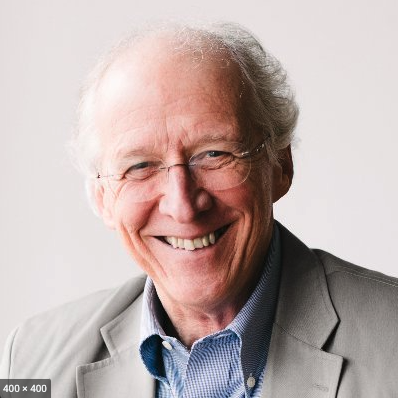Lesson 2: Starting with the Bible
Don't Skip the First Step of Bible Study
This course focuses on the second step of Bible study: engaging wisely with extrabiblical resources. But we must not rush into it by leaping over the first step of Bible study: engaging with the biblical text yourself.
In this lesson we will explore that first step of Bible study, so you will be freshly encouraged to engage deeply with the Bible. We will finish with an assignment where you will carry out that first step with a passage from Haggai.
But first, let’s pause and think through why beginning with the Bible is so essential. If you’re tempted to tiptoe around the first step of Bible study and reach up for a commentary to get easy answers, consider these four invitations to linger in your Bible first.

God promises to illuminate your mind through the work of thinking.
Paul gives this first invitation in 2 Timothy 2:7. There he exhorts his protégé, “Think over what I say, for the Lord will give you understanding in everything.”
You can see the relationship between the two propositions in this verse in the Discourse module:

The reason why Paul tells Timothy to think carefully over what he says is because the Lord will give him understanding. Paul grounds the human effort of contemplation in the divine gift of illumination. Paul doesn’t say, “Think over what I say, because you don’t need the Lord’s gift of understanding.” Nor does he say, “Don’t think over what I say, because the Lord will give you understanding.” Rather, God’s guidance in understanding the Scriptures is the very reason why we must use our brains to understand the Scriptures. God’s gift of the Holy Spirit who knows the thoughts of God (1 Cor 2:10–12) doesn’t invalidate our thinking. It promises success to our thinking.
When you short-circuit the process of thinking, you short-circuit the gift of illumination.
Therefore, think through the grammar of a sentence. Wrestle with a logical relationship. Compare the use of a word in one verse with its use in another verse. And so on.
God promises to transform your heart through Scripture, not people’s thoughts about Scripture.
God told Jeremiah that his Word is “like fire… and like a hammer that breaks the rock in pieces” (Jer 23:29). According to the author to the Hebrews, God’s written Word is “living and active,” “piercing,” and “discerning” (Heb 4:13). It is “the sacred writings” that have the power “to make you wise for salvation,” and that are “profitable…that the man of God may be complete, equipped for every good work” (2 Tim 3:15–17). Paul described “the Word of God” to the Thessalonian believers as being “at work in you believers” (1 Thess 2:13).
I’m not saying that God can’t use the thoughts of any human author to impact your life—he might do that! But God has promised to do that through his Word as you engage with it.
Nor am I saying that your encounters with God in his Word can only take place in your personal Bible reading and not in a church service. God has given us teachers in the church to whom we must listen. And I’m definitely not telling you that God will only work in your heart when you are reading a physical Bible, and not when the Spirit brings what you’ve read to your memory. God wants us to hide his Word in our hearts, so his Spirit can lead us through it during the day.
What I’m trying to help you avoid is the danger of neglecting your Bible for books about the Bible.
Beliefs and convictions will more tightly grip your heart when you’ve dug them up from their Source.
Of course, many of our beliefs about the Bible are mediated through others, and this is how it should be. Paul told Timothy to “continue in what you have learned and have firmly believed, knowing from whom you learned it” (2 Tim 3:14). He learned the Bible at the knees of his mother and grandmother (2 Tim 1:5), and through his mentor, Paul (2 Tim 3:10). I’m not fighting against this beautiful gift, but against our (my!) tendency to be lazy when I read the Bible.
You will treasure the truth of Scripture more deeply if you had to work for it, rather than having it handed to you gift-wrapped with a shiny bow on top. John Piper calls people who let commentators do the hard work of struggling with a difficult text “second-handers.” Listen to him describe the importance of spending time looking at the Book:
Don’t be a second-hander. Don’t be a weak, unconvincing preacher or parent. Remember Piper’s words:
If you are so antsy to find out what somebody else said about this text, so that you will not spend ten minutes… looking at the book, the payoff for you is going to be very small all your life.
—John Piper

You will be rewarded with the joy of discovering biblical truth on your own.
Of course, you never discover biblical truth “on your own,” apart from the illumination of the Spirit. But there is no joy like seeing the glory of God in a Bible verse where you never saw it before. There is no happiness like tasting the sweetness of Christ through a verse or a line of Scripture when God opens your understanding through his appointed means of diligent study (leaving aside the joy of sharing that understanding with others). Don’t rob yourself of this New Covenant delight!
This is the covenant that I will make with the house of Israel after those days, declares the Lord: ... No longer shall each one teach his neighbor and each his brother, saying, ‘Know the Lord,’ for they shall all know me, from the least of them to the greatest, declares the Lord. For I will forgive their iniquity, and I will remember their sin no more. —Jeremiah 31:33–34